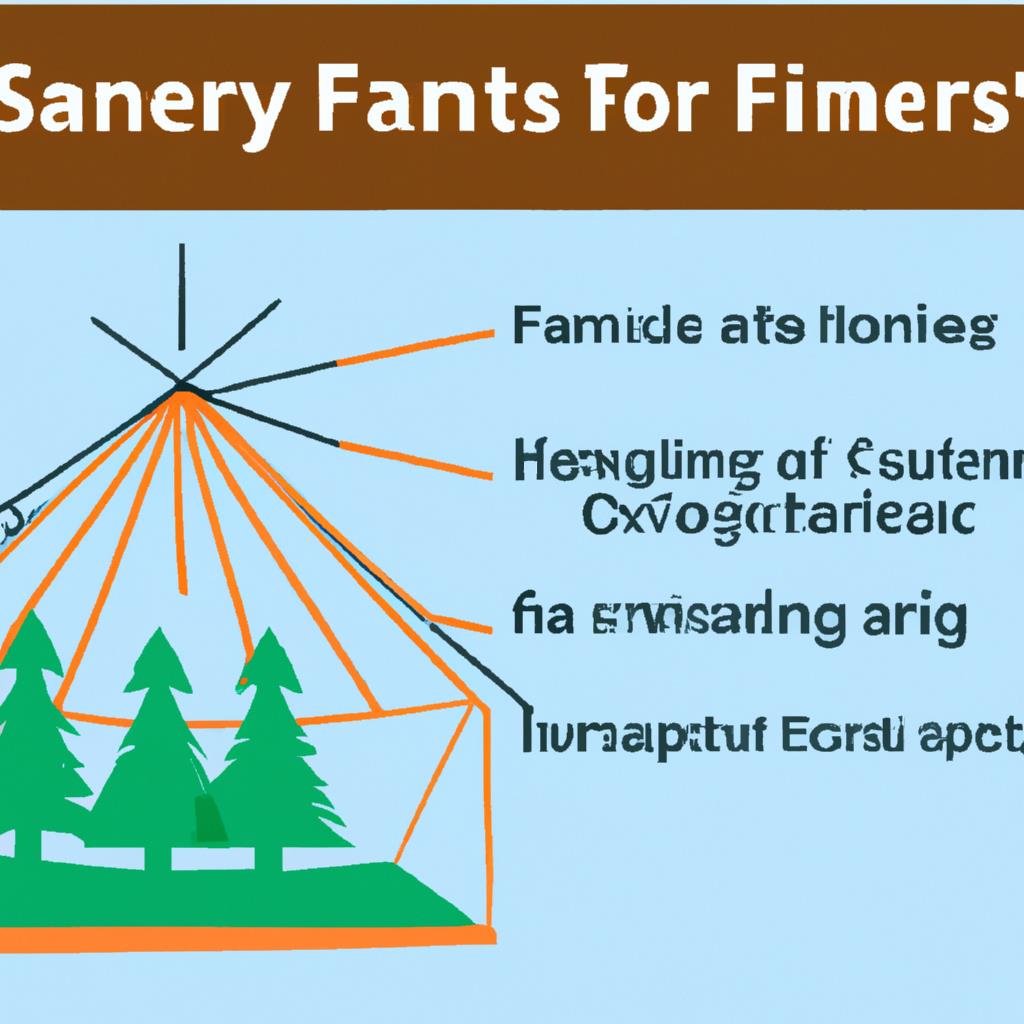Camping and tenting are popular outdoor activities that allow individuals to disconnect from the hustle and bustle of everyday life and reconnect with nature. One of the highlights of any camping trip is sitting around a campfire, roasting marshmallows, and swapping stories under the stars. However, it is important to remember that campfires can be dangerous if not handled properly. In order to ensure a safe and enjoyable camping experience, it is essential to follow important guidelines for campfire safety at tenting and camping sites.
First and foremost, before starting a campfire, it is crucial to check with the campground or park ranger to make sure that fires are allowed. Some areas may have restrictions on open flames due to dry conditions or high fire risk. Always abide by any posted regulations and guidelines to prevent accidents and fines.
When selecting a spot for your campfire, choose a clear and open area away from trees, shrubs, and tents. Make sure there are no overhanging branches or flammable materials nearby that could easily catch fire. Keep a safe distance of at least 15 feet between the campfire and any structures or vegetation.
Before starting the fire, it is important to prepare the fire pit properly. Clear away any debris or combustible materials from the surrounding area. Create a ring of rocks or use a portable fire pit to contain the flames and prevent them from spreading. Never build a fire directly on the ground as it can cause damage to the soil and leave a scar on the landscape.
When gathering firewood, only use designated firewood that is provided by the campground or purchase firewood from a local vendor. Do not collect wood from the surrounding area as it can disrupt the natural ecosystem and introduce invasive species. Avoid burning trash, treated wood, or anything that could release toxic fumes into the air.
Before lighting the fire, have a supply of water and a shovel nearby to extinguish it quickly if necessary. Keep a close eye on the flames at all times and never leave the fire unattended. Make sure to fully extinguish the fire before going to bed or leaving the campsite. Douse the fire with water, stir the ashes, and repeat until the embers are no longer glowing.
It is important to be mindful of the weather conditions when building a campfire. Avoid starting a fire on windy days as it can quickly spread out of control. Check the weather forecast for any potential rain or wind that could affect the fire. Be prepared to adjust your plans accordingly and choose alternative activities if necessary.
When cooking over a campfire, use a sturdy cooking grate or tripod to support pots and pans. Avoid cooking directly on the flames as it can cause food to burn unevenly or fall into the fire. Keep a safe distance from the fire and supervise children and pets to prevent accidents.
Finally, always practice good fire safety habits when camping or tenting. Teach children about the dangers of playing with fire and how to safely enjoy a campfire. Never use flammable liquids to start a fire or attempt to reignite a dying fire with gasoline or lighter fluid.
By following these important guidelines for campfire safety at tenting and camping sites, you can help prevent accidents and preserve the beauty of the natural environment. Remember to always respect the land and leave no trace of your campfire behind. With proper precautions and common sense, you can enjoy a safe and memorable camping experience around the warmth of a crackling fire.


leave a comment